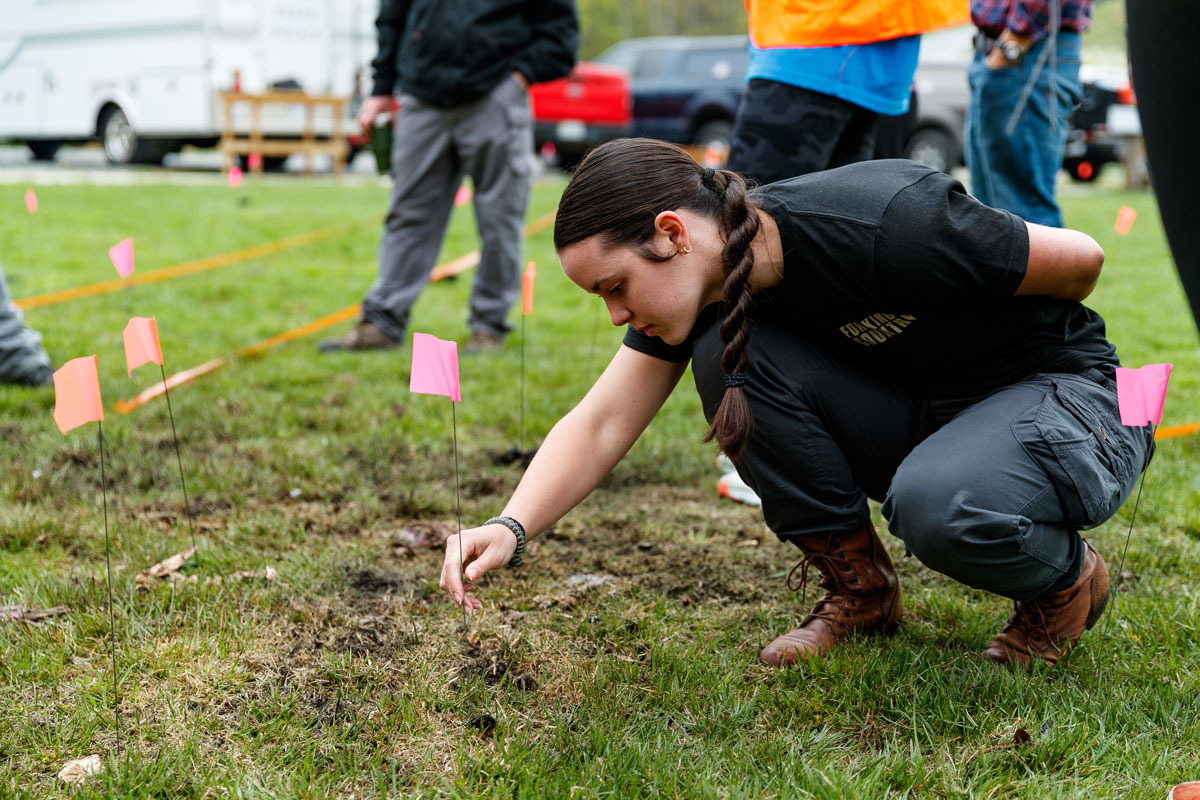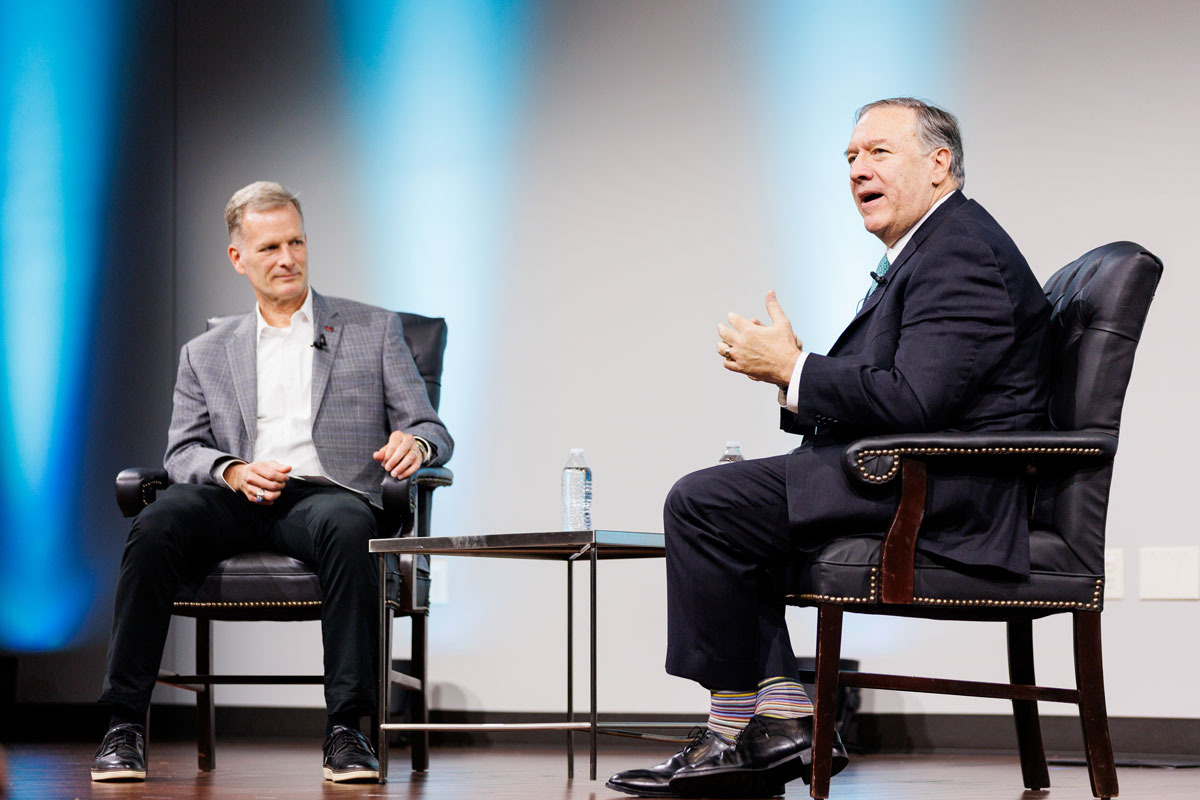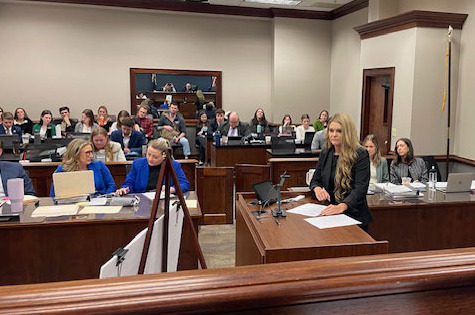Search News Archives
Filter News Articles
Additional Navigation
Respiratory therapy faculty called to action to train local health professionals during COVID-19 response
March 25, 2020 : By Ted Allen - Liberty University News Service
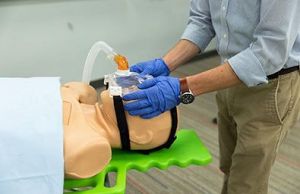 In a proactive response to the COVID-19 pandemic, Dr. Brian Walsh, a professor of Health Sciences and director of Liberty University’s Respiratory Therapy Program, is expanding his department’s training to area clinicians through a partnership with Liberty’s School of Nursing, Liberty University College of Osteopathic Medicine (LUCOM), and Centra Health, the regional healthcare system based in Lynchburg, Va.
In a proactive response to the COVID-19 pandemic, Dr. Brian Walsh, a professor of Health Sciences and director of Liberty University’s Respiratory Therapy Program, is expanding his department’s training to area clinicians through a partnership with Liberty’s School of Nursing, Liberty University College of Osteopathic Medicine (LUCOM), and Centra Health, the regional healthcare system based in Lynchburg, Va.
Walsh, who launched the Bachelor of Science in Respiratory Therapy under Liberty’s Department of Allied Health Professions in the fall, is working with Dr. Jeremy Hardison, who specializes in critical care medicine and pulmonary disease at Centra Health, to coordinate training on the community level in preparation for a potential disaster response.
“Centra has reached out to us to help support educational efforts of frontline staff who may be called upon to help with this pandemic,” Walsh said. “We will refresh or renew knowledge and training that those providers may have had through a series of online education modules and limited face-to-face encounters with providers in our local community.”
Before coming to Liberty last summer, Walsh spent eight years as an associate professor of anesthesia at Harvard Medical School and served as clinical research coordinator at Boston Children’s Hospital.
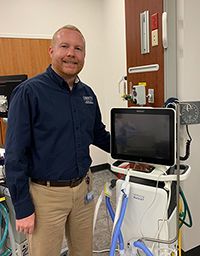
According to the Society of Critical Care Medicine, there are currently approximately 200,000 ventilators nationwide available for upwards of 1 million patients who may require mechanical ventilation to treat COVID-19. Locally, Walsh said the demand could also exceed the supply, but he is also concerned about the number of medical workers properly trained in using the apparatus.
“The shortage of ventilators is one thing, but the lack of personnel equipped to use them to take care of and safely manage the patients’ health is even more critical,” he said, comparing having a ventilator without a respiratory therapist to having a car without a driver. “Our faculty will be teaching local nurses, respiratory therapists, and doctors, partnering with the School of Nursing, to train people who don’t normally work in the intensive care unit to help with a surge of patients. The same information we normally teach our students, we are now using as we turn our attention to healthcare providers who don’t routinely take care of mechanically ventilated patients.”
Walsh and his colleagues John Lindsey and Dr. Jonathan Waugh will utilize Just In Time training videos and strategies such as job aides to provide easy-to-understand resources in a timely fashion.
“We are trying to start it this week, rolling out an educational platform that will be largely online,” Walsh said, noting that he is balancing the need for personal training while practicing social distancing. “I am recording the videos of how you do these things and creating QR codes to place directly on equipment so clinicians can scan them into their smartphones and it will take them to a PDF or video.”
Like the rest of the university, respiratory therapy classes have been shifted to an online format.
“We’re just like everybody else, doing classes online while still trying to hold a very limited number of labs and continue to move these students on,” he said. “Otherwise, we would have to delay graduation and we wouldn’t want to do that, especially in today’s climate of need.”
Walsh and his two colleagues, who each teach five courses, have tailored their curriculum for their students as well as healthcare workers in the community to include specific ways to treat patients with COVID-19 and other viral infections.
“We are training therapists to understand this virus,” Walsh said. “It is kind of a case study for us to leverage and teach from.”
The respiratory therapy degree is a four-year program, requiring two years of undergraduate science courses in preparation for two years of respiratory therapy-specific training. Walsh said there is discussion among state and local leaders to allow students to be available to provide respiratory services without first completing their degrees.
“While I pray it never comes to this, I want the students to be prepared to help if the need arises,” Walsh said. “Therefore, we press on.”
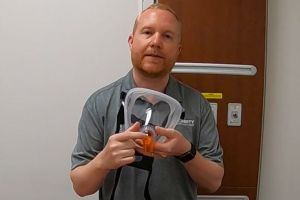
The U.S. Department of Labor and Statistics reports that there are about 134,000 respiratory therapists nationally and the demand for their services continues to grow at a much faster pace than average.
“This was one of the reasons we developed the program at Liberty, to help meet that demand,” Walsh said. “In the face of the COVID-19 pandemic, we continue to work toward producing great graduates who will go on to become respiratory therapists.”
The respiratory therapy program also offers an online post-licensure RRT to BSRT degree. Both degree programs hold provisional accreditation through the Commission on Accreditation for Respiratory Care (CoARC).
Watch an example of a training video Dr. Walsh has prepared for area providers licensed through Centra to learn how to properly monitor the use of a ventilator.
